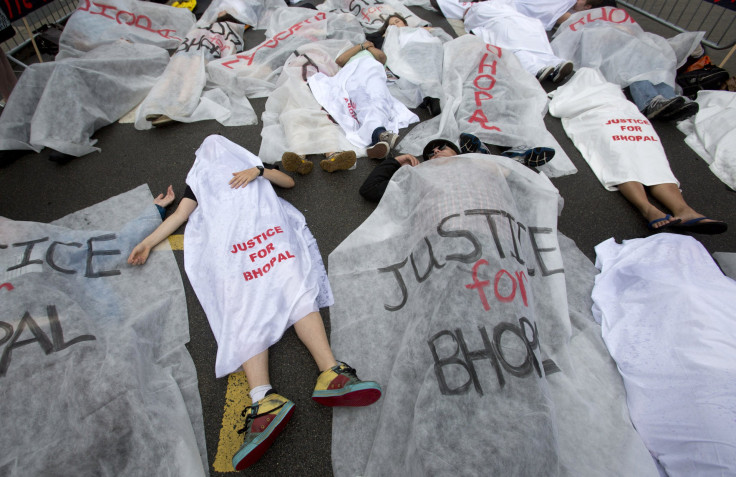Bhopal Gas Leak: India Pledges More Relief For Survivors

The Indian government has promised new compensation for survivors of the catastrophic gas leak at a Union Carbide pesticide plant in the central Indian city of Bhopal. The government made the announcement Friday, five days after five women started an indefinite hunger strike in hopes that they could spur Indian authorities to take action on behalf of the more than 500,000 people who were poisoned in the leak on Dec. 2, 1984, according to a statement by Amnesty International.
“This is a major victory for survivors of the 1984 gas leak, but subsequent generations of Bhopalis continue to suffer as chemicals abandoned by Union Carbide 30 years ago continue to leak into the groundwater today,” Audrey Gaughran, Amnesty International's director for global issues, said in the Friday statement.
India's Minister of Chemicals and Fertilizers invited the five women to a meeting, in which he agreed to reconsider the official government figures on how many people were affected by the leak, and to provide compensation for the many survivors who still have gone unpaid for the past 30 years, the international organization said.
“We welcome this important move by the government, now Prime Minister Modi must ensure his government’s pledge is honoured,” Gaughran said. “That would be a historic step towards justice for Bhopal.”
The protesters initiated the hunger strike in support of a years-long effort by survivors and activists to force the Indian government to revisit its calculations of the people impacted by the leak.
The government's official figures stated that the leak led to 5,295 deaths, 4,902 becoming permanently disabled and 42 severe injuries, according to Amnesty International. But supporters of the women and other activists have long demanded that the government recognize its figures, which state that the leak was responsible for 22,917 deaths, 508,432 becoming permanently disabled and 33,781 severe injuries. More than 20,000 still live near the plant, which has yet to be properly cleaned up, according to Greenpeace.
On Dec. 2, 1984, the Union Carbide plant began leaking dozens of tons of Methyl Isocyanate (MIC) -- a poisonous chemical -- into Bhopal city, killing thousands of residents and leaving many thousands more to lives complicated by cancer, birth defects, blindness and a range of neurological, immune and respiratory issues and disorders, according to DNA India.
Dow Chemical acquired Union Carbide in 2001, but has not forced it to clean up the Bhopal plant or to face up to a range of crimes, Amnesty International reported.
Union Carbide settled with the Indian government in 1989 for $470 million -- about $370 to $533 per victim -- a number that activists say was far too low, according to Greenpeace. In 1987, a number of top Union Carbide employees including then-CEO Warren Anderson were charged with crimes including culpable homicide and grievous assault. An arrest warrant was issued for Warren Anderson in 1992, but still no one from Dow Chemical or Union Carbide has returned to India to face the charges.
Upon the launch of the five-woman hunger strike, activist Satinath Sarangi said the strike was an indefinite one, DNA India reported.
"Our first demand is that every gas victim should get an additional compensation of rupees one lakh. Our second demand is that in 2010 the federal government had asked the Supreme Court to intervene to rectify the data and figures of the number of deaths and those suffering," she said. "The Union Carbide and its present owner Dow Chemicals should give the required additional compensation. We also demand data relating to the number of death and the sufferers should be rectified."
© Copyright IBTimes 2025. All rights reserved.





















